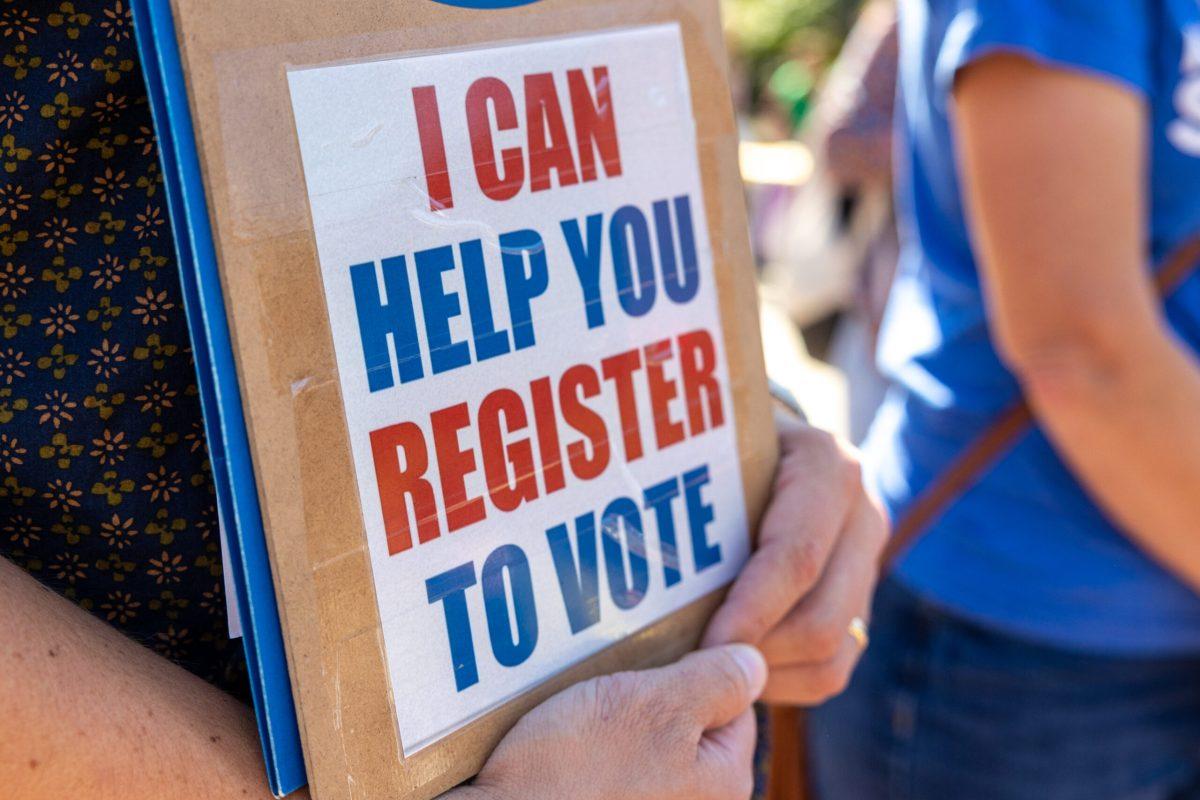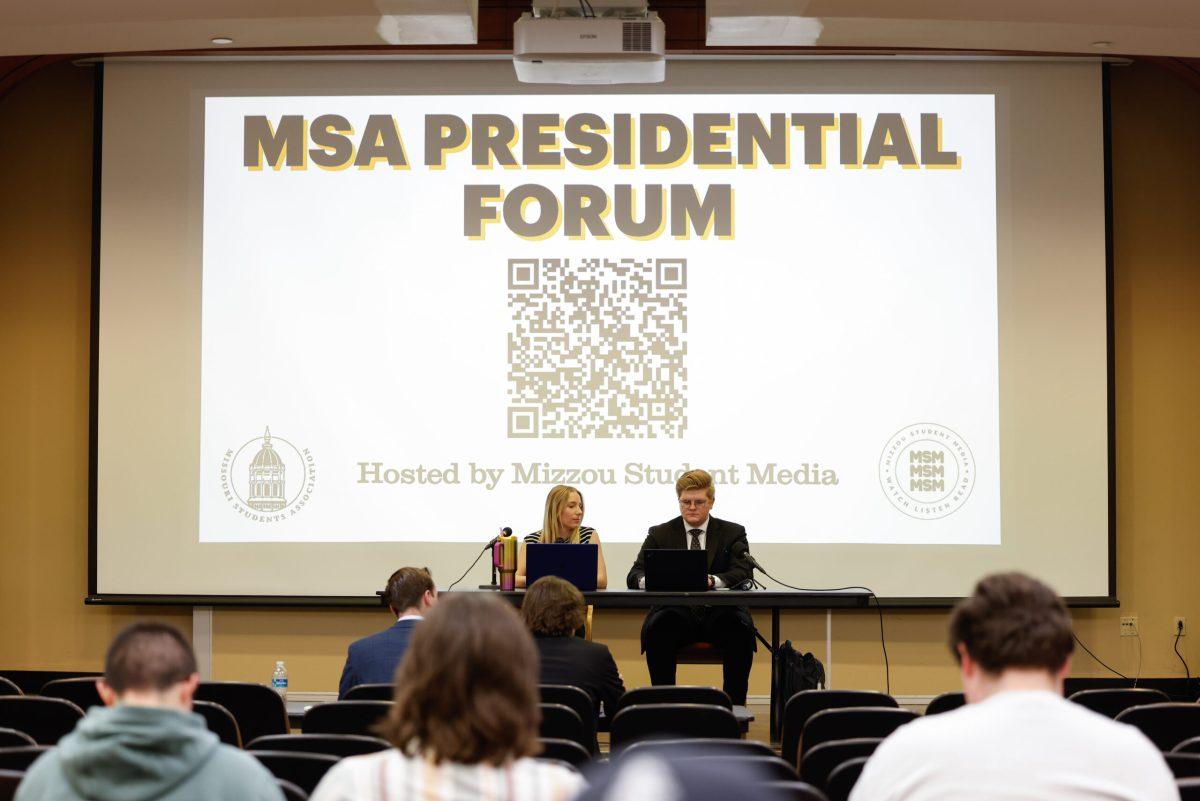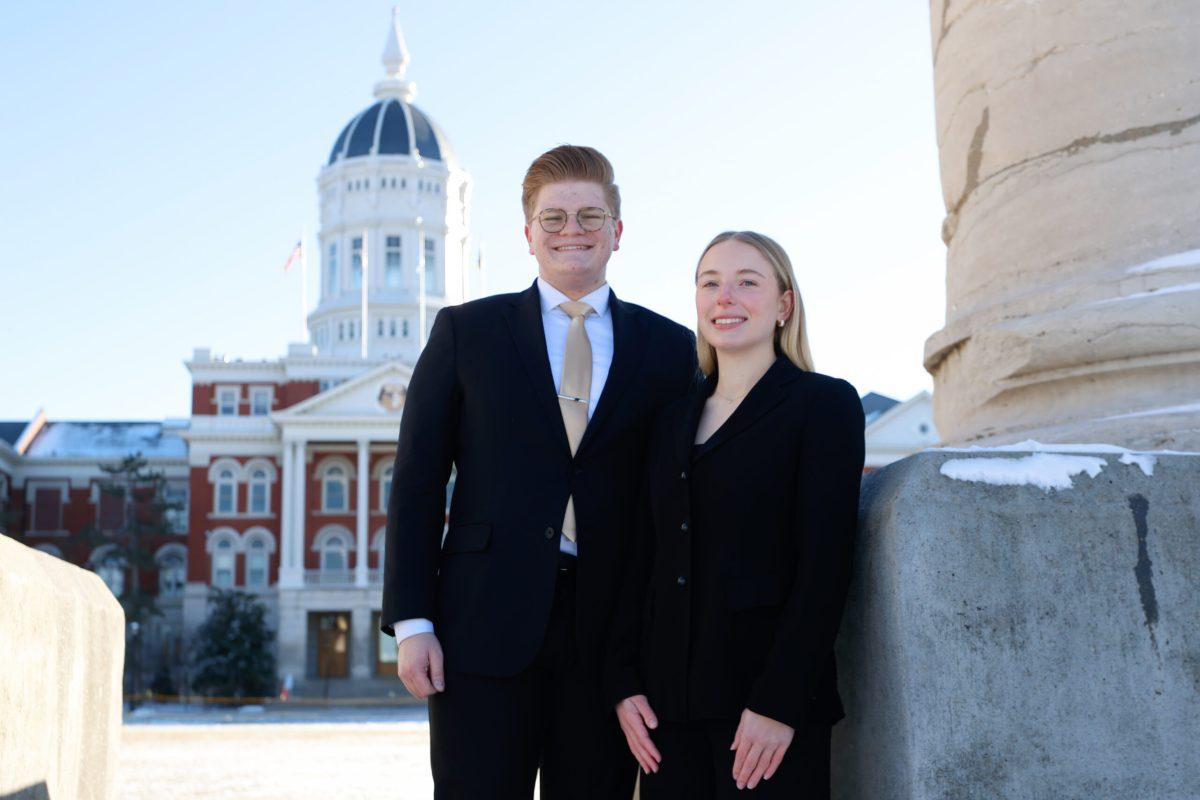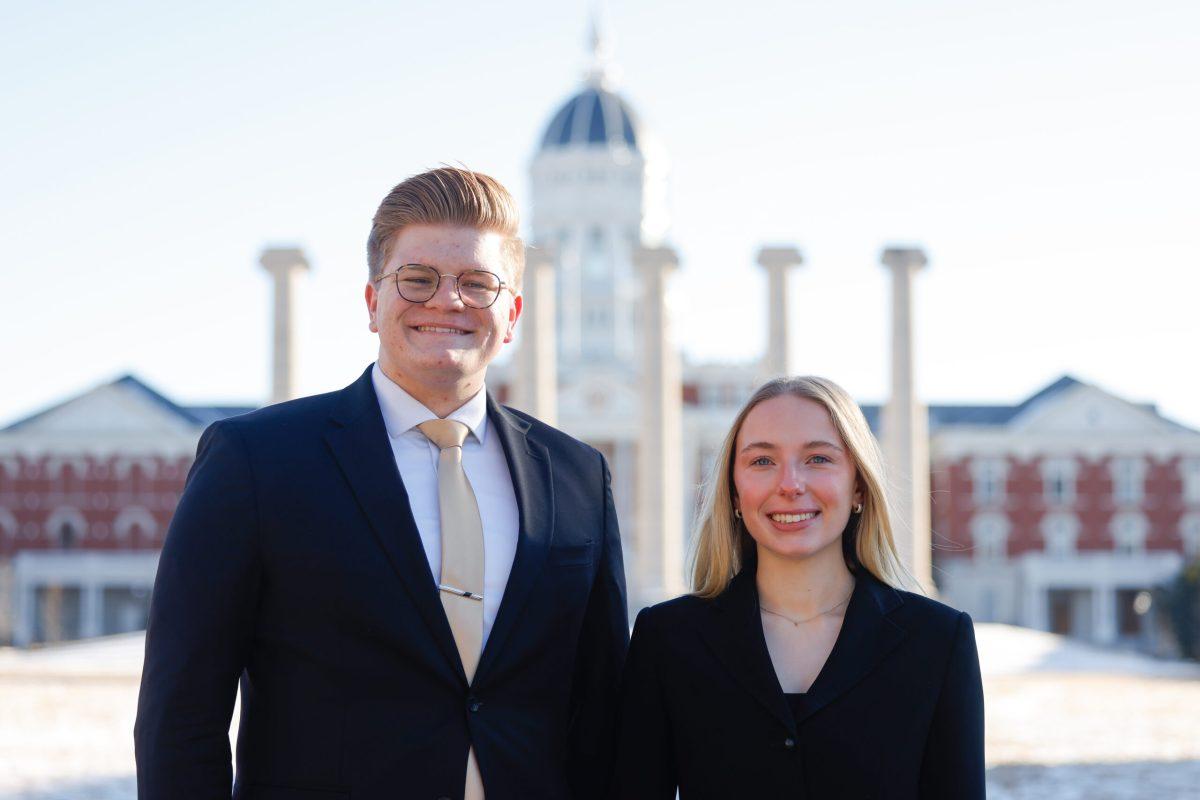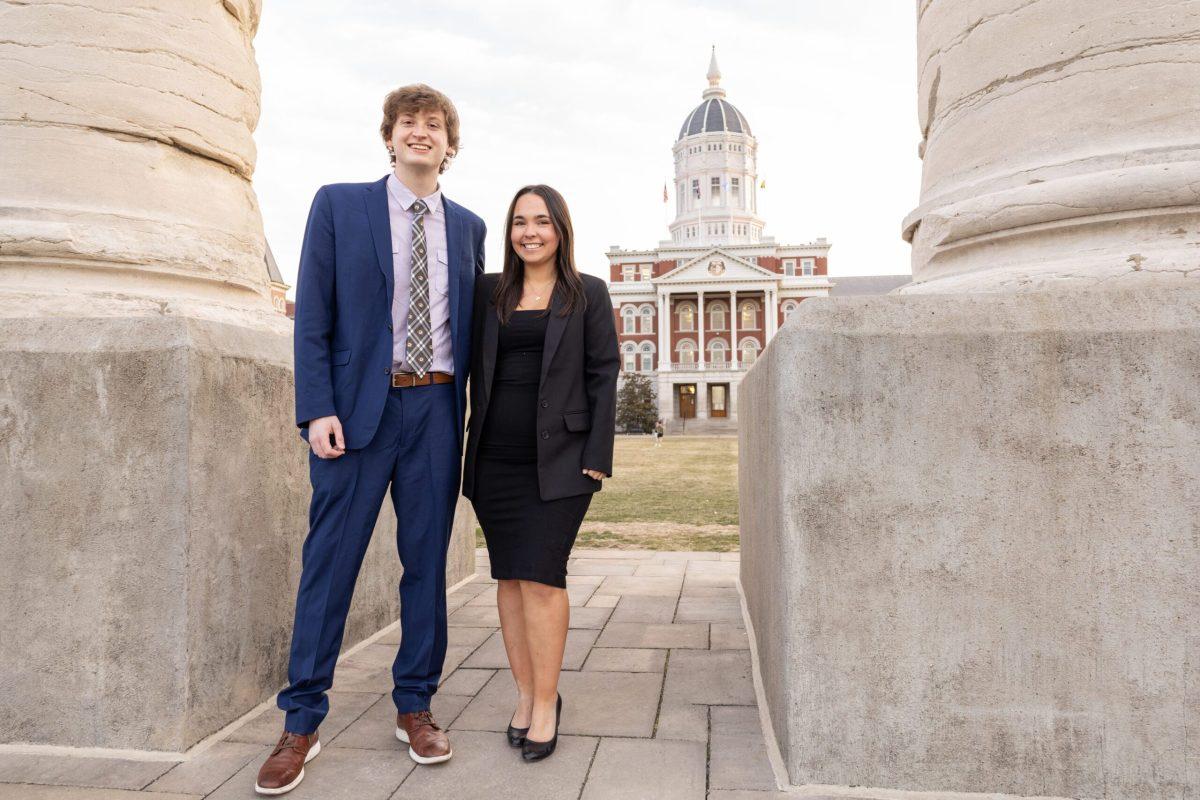A new Missouri law now requires voters to provide a non-expired government issued photo ID, such as a Missouri driver’s license or U.S. Passport, when they cast their ballot. Other forms of identification, like MU student IDs, are not valid.
The law, House Bill 1878, tightened election proceedings in Missouri effective Aug. 28, just months before the upcoming November midterm elections.
“In 2020 and years prior, Missouri has conducted free, fair and secure elections, but with changing technologies and new emerging threats, we want to ensure they remain that way,” Gov. Mike Parsons said after signing the bill into law in June. “HB 1878 strengthens our election processes and gives Missourians confidence that their voices are being accurately and securely recorded at the ballot box.”
Boone County Clerk Brianna Lennon said the legislation has caused widespread uncertainty across the county.
“There’s a lot of confusion, and it’s not even necessarily about what the law does, but what people perceive what the law does,” Lennon said.
Sophomore Kevin Nguyen, who had not heard of HB 1878, says he already feels unenthusiastic about politics and does not plan on voting in the upcoming midterm election.
“There’s a lot of stuff, just like loopholes and things you want to learn if you want to be really informed,” Nguyen said. “Trying to stay really informed and be a good voter … it takes a bit too much work for me.”
Lennon said she anticipates uncertainty generated by the law to be a deterrent to voters, which could further disinterest people like Nguyen.
“I think confusion about the law is the most likely thing to depress turnout, because people are either too concerned to go vote or they’re going to think it’s not worth their time to go out and do it,” Lennon said.
Missourians lacking a valid photo ID, such as out-of-state students, can receive a free nondriver license through the Missouri Secretary of State. However, Lennon cautions against this.
“The free ID is a nondriver’s license,” Lennon said. “If you get a free ID, you give up your driving privileges. So please don’t do that.”
Freshman Callie Hazel says she plans to vote for the first time in the upcoming midterm elections but has faced difficulties as an out-of-state student without a photo ID.
“I’m still working on my residency here in Missouri, so I’ve been trying to get my Missouri voter’s license,” Hazel said. “But it’s been more of a daunting task than I thought it would be.”
However, registered voters can still cast their ballot even without a photo ID by filling out a blue provisional ballot on Election Day.
“There is this catchall blue provisional ballot, where you can vote if you don’t have the right ID,” Lennon said. “It will count as long as the signature on the envelope matches the signature on the voter registration record.”
Missouri has offered the provisional ballots since 2017, but they are now the only way to vote without a valid photo ID. Though more accessible, provisional ballots take longer to fill out and, as they require additional verification, and could delay election results.
“I think the way that this law is written, the natural consequence is that there may be more blue provisional ballots,” Lennon said. “And if that’s the case, that means that it will be a longer process.”
Lennon said she encourages registered voters to show up even without a photo ID and that they should allot more time to the polls if they plan on filling out a provisional ballot.
“If you set your expectations that this is going to be a ‘twenty-minute thing’ instead of a ‘five minute thing’, like it used to be, it’s not too bad,” Lennon said.
Lennon said the lengthier provisional ballot could make the voting process even more difficult for individuals who already face transportation or time restrictions. Hazel said she fell into that category.
“I don’t have a car, so I’ll be reliant on someone else or have time to go vote and still have enough time for walking,” Hazel said.
Boone County has prepared procedures for polling locations it predicts might use more provisional ballots, such as those used mostly by college students, in an effort to mitigate wait times. Lennon said that at Hearnes Center, one of those locations, the polls will be split between voters who require provisional ballots and those who do not to expedite lines.
Lennon said the new law could make Missouri take longer to release them.
“Missouri has always been that, on election night, we know who won,” Lennon said. “This may mean that now we don’t know who wins on election night.”
Lennon said this could be especially problematic in an age where Americans more heavily distrust elections.
“If this office can’t give people a concrete answer on who won the election immediately, then people’s minds are going to wander,” Lennon said. “There’ll be questions about why that is. That’s why I’m trying to draw the line now, between this law and potential delayed results. It’s not because there was a problem, it’s not because anybody did anything wrong. This is just what happens.”
HB 1878 also modifies absentee voting and voter registration. The law bans receiving payment for registering other people to vote and demands volunteers register with the state if registering more than 10 other voters.
Additionally, it allows voters to cast an absentee ballot, in person and with a valid photo ID, up to two weeks before an election for any reason.
Lennon recommended voting absentee if possible, as it will ease crowds on Election Day and ensure voters are able to cast their ballot.
“If you already have an ID, I definitely encourage you to do the no-excuse absentee and get it out of the way, so you don’t have to worry about it on Election Day,” Lennon said.
Lennon says she ultimately predicts two possible effects of House Bill 1878.
“Either we have lower turnout, because that’s how people feel,” Lennon said, “or we have higher numbers of blue provisional ballots, which in turn means longer lines at the polls and people have a negative experience with voting.”
No-excuse absentee voting for the midterm elections begins Oct. 25., and Election Day is Nov. 8. More information can be found on the Boone County Election Calendar at https://www.showmeboone.com/clerk/elections/calendar.asp.
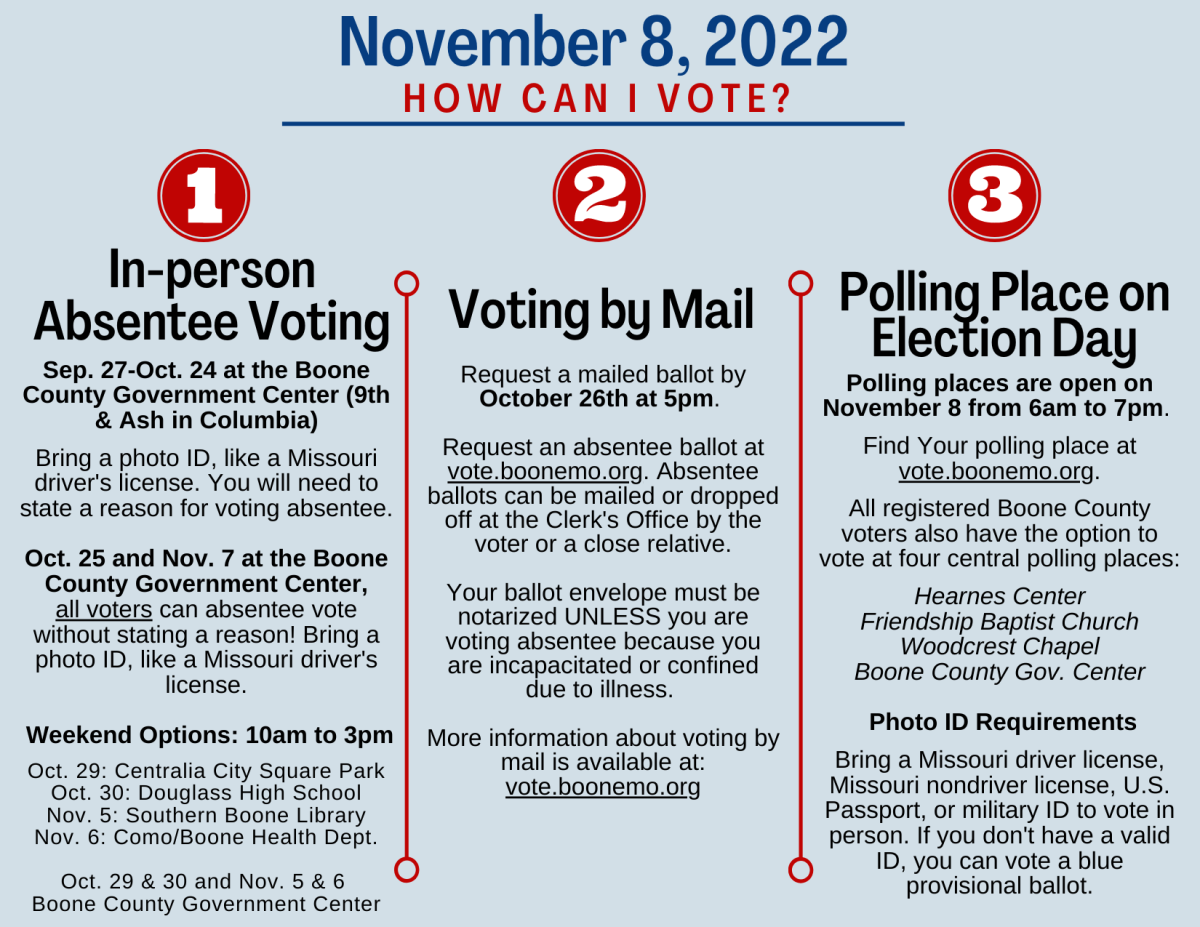
Edited by Zoe Homan | [email protected]
Copy edited by Mary Philip and Jacob Richey


